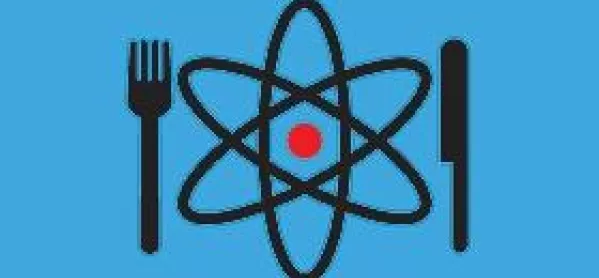Home cooking raises physics take-up

Fish oils, nuts and seeds have all been claimed to boost pupils’ brainpower - but a family meal is likely to have a bigger impact than “superfoods” when it comes to studying science, new research suggests.
Children who regularly eat with their families are 30 per cent more likely to take biology and physics at A-level than other pupils, according to a Government study.
The research, on high-achieving maths and science students, analysed a wide range of data on pupils who study maths and science at A-level and compared it with their home lives.
Pupils with married parents are 50 per cent more likely to take chemistry, while those whose parents are either married or co-habiting are twice as likely to study the subject as other students.
It found that pupils whose mothers and fathers attend parents’ evenings are 50 per cent more likely to take biology A-level.
The report shows that the area where a child lives also “significantly” influences their subject choices after GCSE.
Children growing up in wealthier areas are 30 per cent more likely to take chemistry than other pupils.
Those who ate with their families “on most nights or every night” at age 14 were more likely to have success at A-level science than other pupils, according to the research.
“The odds of gaining grade A or B were 60 per cent higher in biology A- level, 50 per cent higher in physics, and 40 per cent higher in chemistry, compared with the odds for pupils whose family did not eat together this frequently,” it says.
The study, carried out by the Department for Education, did not provide statistics on the impact of family life on other subjects.
Researchers found pupils’ enjoyment of a subject, their belief in their own abilities and working hard at school were among the most important factors influencing take-up and achievement of science and maths at A- level.
But it added: “Subject-specific effects existed for family factors such as attendance at parents’ evenings, eating together as a family, living with married or co-habiting parents, and receiving private tuition.”
But among the factors found to be “not important” were “highest parental qualification, parental employment status, household income, pupil aspirations to continue in full-time education, and the perceived reputation of the key stage 4 school attended”.
Association for Science Education chief executive Annette Smith said: “This research gives us an idea of the type of pupils who choose science, but you can’t claim cause and effect. It only shows correlation.
“Teachers do find children whose parents have a science qualification or job in that field are more likely to choose the subject.”
Pan Panayiotou, acting deputy head of Ash Manor School, Surrey, a specialist technology college, has introduced science, technology and maths “tutor time” to encourage enthusiasm for the subjects.
“Children’s aspiration doesn’t just come from their family, but also from outstanding teaching which engenders excitement and interest,” he said.
CONTINUATION RATES: Going on to greater things
- Pupils from grammar schools and independents have the highest rates of continuation to A-levels in maths and science; they also have the highest achievement of A-level grades A or B.
- However, maths and computingscience specialist schools, along with grammars, have the highest rates of continuation for those pupils with GCSE grades A* or A in maths and science.
- Pupils who take separate science GCSEs are three times more likely to take A-level science qualifications.
- Original headline: Set the table if you want a scientist in the family
Keep reading for just £1 per month
You've reached your limit of free articles this month. Subscribe for £1 per month for three months and get:
- Unlimited access to all Tes magazine content
- Exclusive subscriber-only stories
- Award-winning email newsletters
